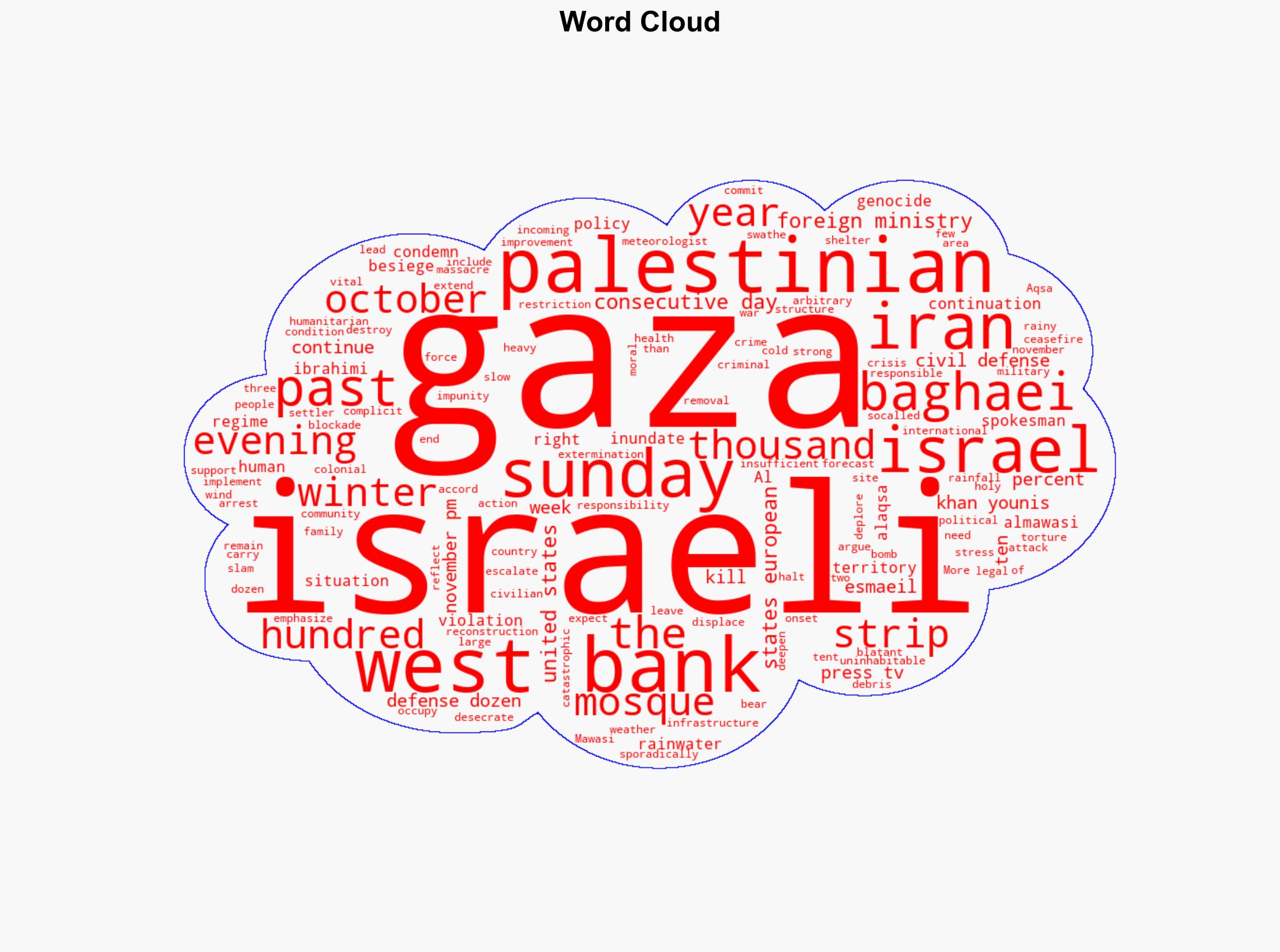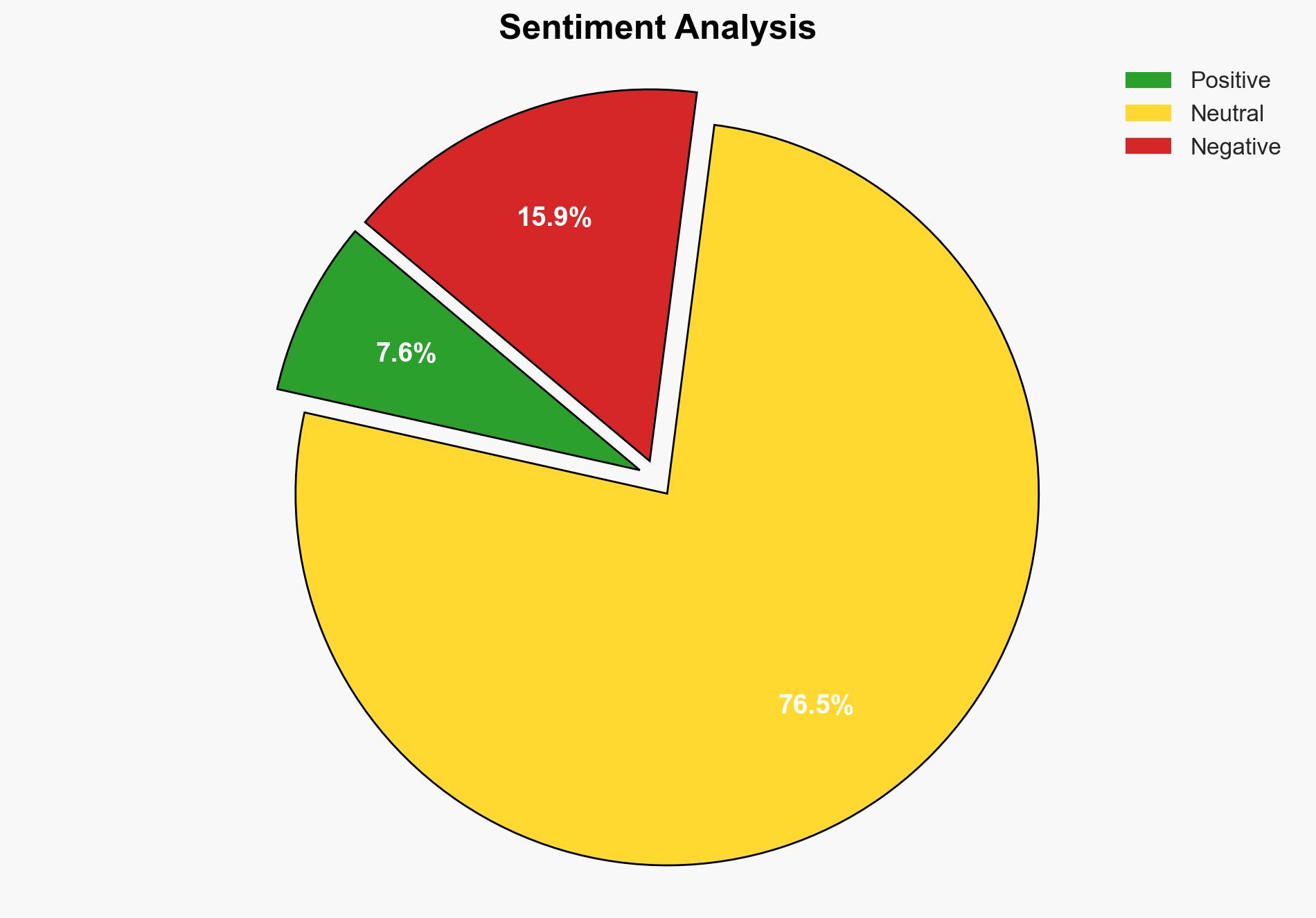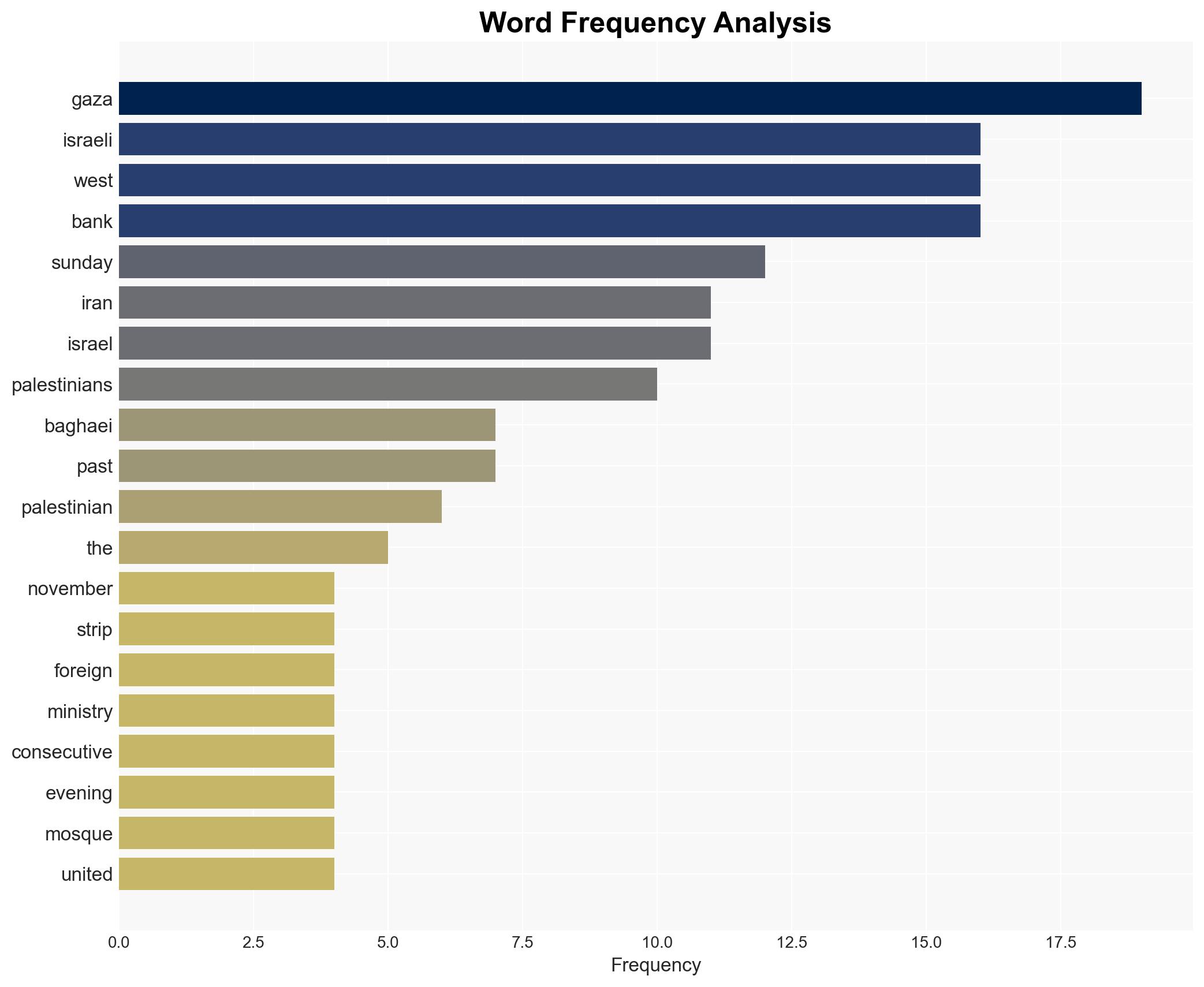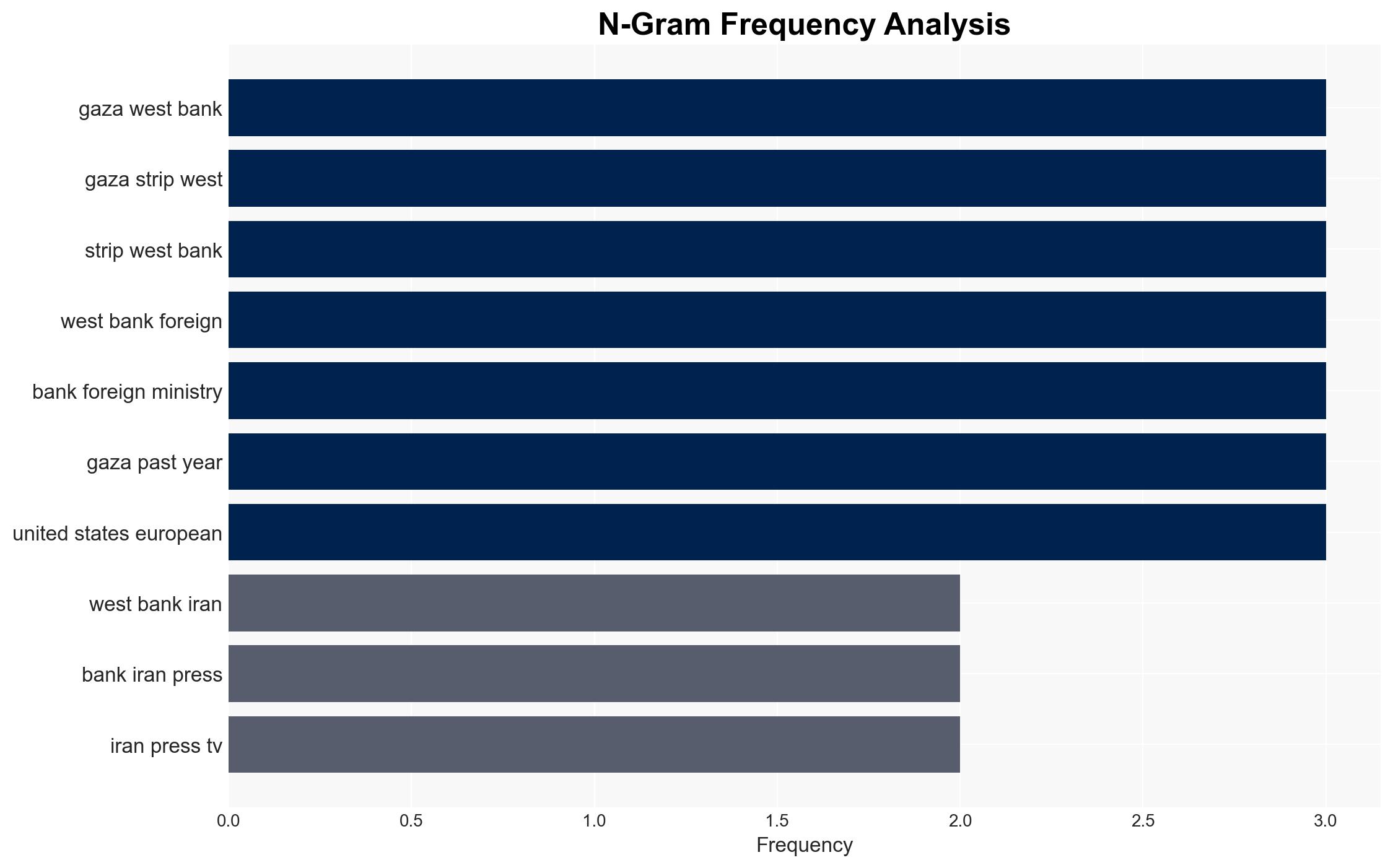Iran deplores continued Israeli killings human rights violations in Gaza West Bank – Globalsecurity.org
Published on: 2025-11-17
AI-powered OSINT brief from verified open sources. Automated NLP signal extraction with human verification. See our Methodology and Why WorldWideWatchers.
Intelligence Report:
1. BLUF (Bottom Line Up Front)
With a moderate confidence level, the most supported hypothesis is that Iran’s public condemnation of Israel serves as a strategic effort to bolster its influence among Palestinian groups and within the broader Muslim world. Recommended actions include monitoring Iran’s diplomatic and military engagements in the region and preparing for potential escalations in rhetoric or proxy conflicts.
2. Competing Hypotheses
Hypothesis 1: Iran’s condemnation of Israel is primarily a strategic maneuver to enhance its regional influence and support among Palestinian factions and other Muslim-majority countries.
Hypothesis 2: Iran’s statements are primarily driven by genuine concern for human rights violations and humanitarian conditions in Gaza and the West Bank.
Hypothesis 1 is more likely given Iran’s historical pattern of using the Israeli-Palestinian conflict to assert its leadership in the Muslim world and its support for groups like Hamas. Hypothesis 2, while possible, is less consistent with Iran’s broader geopolitical strategy.
3. Key Assumptions and Red Flags
Assumptions include the belief that Iran’s statements are primarily politically motivated rather than humanitarian. A red flag is the potential for Iran to use this rhetoric to justify increased support for proxy groups. Deception indicators include the possibility of Iran exaggerating or fabricating details to incite further unrest.
4. Implications and Strategic Risks
The primary risk is the escalation of proxy conflicts in the region, potentially involving Hezbollah or other Iranian-backed groups. There is also a risk of increased cyber operations targeting Israeli infrastructure. Politically, this could strain relations between Israel and Western allies, particularly if Iran’s narrative gains traction internationally.
5. Recommendations and Outlook
- Monitor Iranian communications and military movements for signs of increased support to proxy groups.
- Engage with regional allies to counter Iran’s narrative and reinforce diplomatic efforts for peace.
- Best-case scenario: Diplomatic efforts lead to de-escalation and improved humanitarian conditions.
- Worst-case scenario: Increased hostilities and regional instability due to proxy engagements.
- Most-likely scenario: Continued rhetorical exchanges with periodic escalations in proxy activities.
6. Key Individuals and Entities
Esmaeil Baghaei – Iran’s Foreign Ministry Spokesman
7. Thematic Tags
National Security Threats, Middle East Conflict, Proxy Warfare, Humanitarian Crisis
Structured Analytic Techniques Applied
- Cognitive Bias Stress Test: Expose and correct potential biases in assessments through red-teaming and structured challenge.
- Bayesian Scenario Modeling: Use probabilistic forecasting for conflict trajectories or escalation likelihood.
- Network Influence Mapping: Map relationships between state and non-state actors for impact estimation.
Explore more:
National Security Threats Briefs ·
Daily Summary ·
Support us
·





